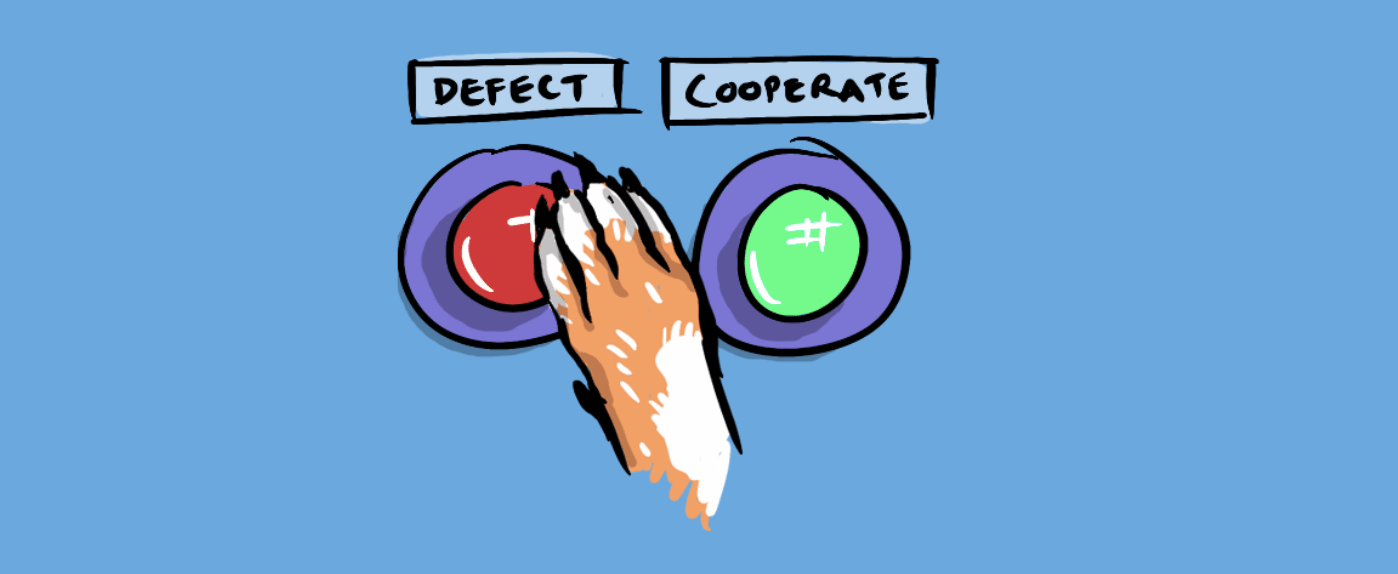Recently we've been exploring moral philosophy with our series on Moral Licensing, Andrew Tane Glen's Why Cooperate?, and in a workshop I ran with my daughter's class about the strategies of cooperation and defection. One phenomenon that has arisen through these explorations is that defectors gain a short term, relative advantage, while cooperators benefit from a sustained long term absolute advantage, which got me thinking about a simulation.

This post revolves around a simulation, that only runs on the site, come on over and check it out :)

It seems like you’re drawing a general conclusion about cooperation and defection. But your simulated game has very specific parameters. The pay off matrix, the stipulation that nobody dies, the stipulation that everyone who interacts with a defector recognizes so and remembers, the stipulation that there are only two types of agents, etc. It doesn’t seem like any general lessons about cooperation/defection are supported by a hyper-specific set up like this
Hi Nathan,
Thanks for your response, and I see your point, the more specific the parameters get, the less general the conclusions can be.
To explain, my purpose in using a simulation is to illustrate a phenomenon that is perhaps too complex to reduce to a formula, because it seeks to emulate some aspects of society that are often not accounted for in game-theoretical models. Simulations allow for complex parameters to provide a sort of empirical evidence for principles that might not be able to be proven mathematically (by me at least).
The reason I've chosen... (read more)